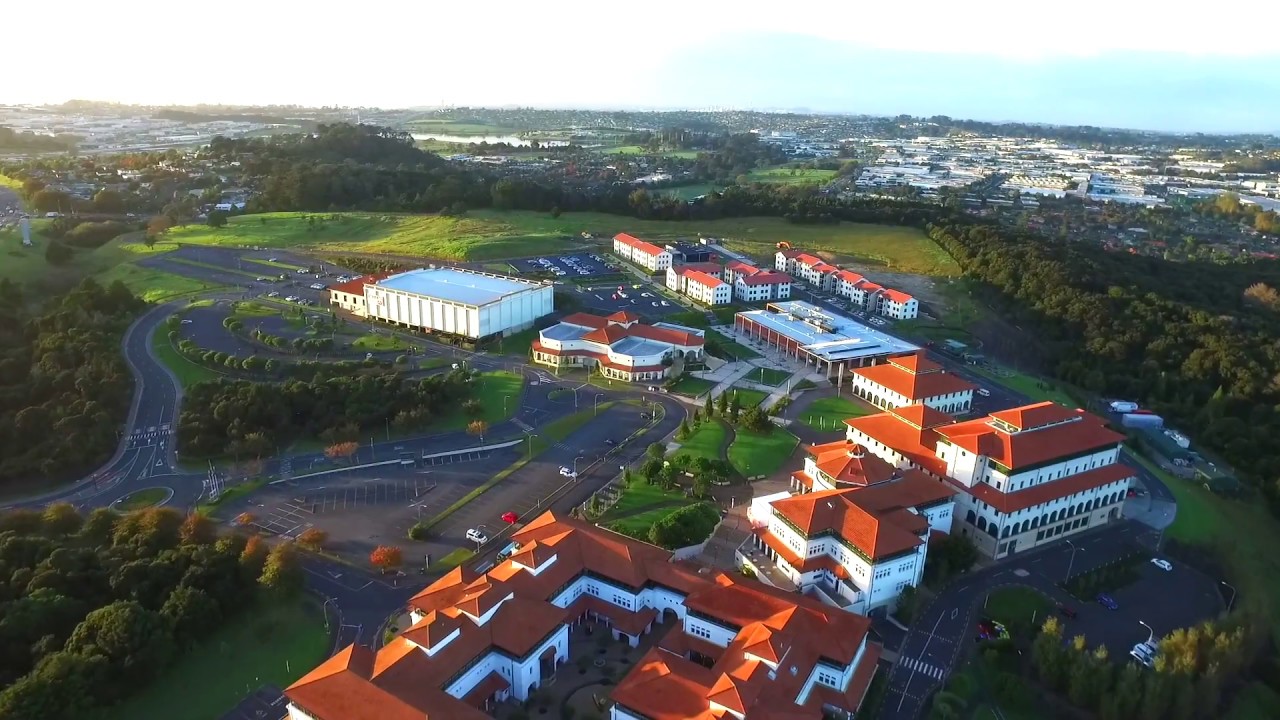Master of Science (Biochemistry)
In Massey University’s Master of Science (Biochemistry) you will undertake enquiry-based course work. You will have the opportunity to do a unique research project under the guidance of experts in their respective fields.
Intellectually challenging
This is an intensive, intellectually challenging programme. Time management is critical. You can expect to acquire many transferable skills, sought-after by employers.
Biochemistry focuses on:
- the structure and function of proteins
- the intricacies of cellular metabolism
- communication and information transfer from nucleic acids.
These improve our knowledge and understanding of biomedical science, biotechnology and biological chemistry.
World-leading facilities and equipment
Massey University is well supported with specialist equipment to carry out biochemistry research. In addition to:
- a dedicated tissue culture facility
- real-time PCR instruments
- specialised fluorescence microscopes and plate readers
- the Manawat? Microscopy Centre
Confocal, and scanning, transmission and epifluorescence microscopy services and expertise are therefore on site.
Genome sequencing services are also readily accessible with both the Massey Sequencing Service and a New Zealand Genome Limited laboratory housed on the university’s Manawat? campus. This service centre is equipped with ABI3730 and Illumina MiSeq instruments and associated expertise. A group of dedicated bioinformatics experts support this service. We house a full suite of protein purification, separation and analysis equipment, including DIGE imaging and access to mass spectrometers. There is also an X-ray diffraction laboratory and access to the Australian Synchrotron in Melbourne.
Campus Information
Auckland campus
Massey University’s innovative Auckland / Oteha campus is located on the North Shore of New Zealand’s largest city – Auckland. The campus grounds are peaceful with many native trees and plants, yet it’s only a five minute walk to the expansive Westfield shopping centre with its movie theatres, shops, restaurants and numerous fast food outlets. If you want to travel further, there are buses running regular routes around the North Shore region and into Auckland city.
Manawatu campus
The Manawatu campus is Massey's original campus. With lovely heritage buildings and park-like grounds located near Palmerston North city, it is one of the best places in the country to experience the real student lifestyle. With a huge portion of the population under 25 it is the perfect place for learning and living. The large campus is beautiful year-round with 11,500 different varieties of plants and trees in the form of manicured gardens, green fields, woodlands and bush.
Intakes
- Feb
- July
Application Processing Time in Days: 30
Minimum English Language Requirements
| English Level Description | IELTS (1.0 -9.0) | TOEFL IBT (0-120) | TOEFL CBT (0-300) | PTE (10-90) | |
|---|---|---|---|---|---|
| Expert | 9 | 120 | 297-300 | 86-90 | |
| Very Good | 8.5 | 115-119 | 280-293 | 83-86 | |
| Very Good | 8 | 110-114 | 270-280 | 79-83 | |
| Good | 7.5 | 102-109 | 253-267 | 73-79 | |
| Good | 7 | 94-101 | 240-253 | 65-73 | |
| Competent | 6.5 | 79-93 | 213-233 | 58-65 | |
| Competent | 6 | 60-78 | 170-210 | 50-58 | |
| Modest | 5.5 | 46-59 | 133-210 | 43-50 | |
| Modest | 5 | 35-45 | 107-133 | 36-43 | |
| Limited | 4 | 32-34 | 97-103 | 30-36 | |
| Extremely Limited | < 4 | < 31 | < 93 | < 30 |
Job Opportunity Potential
As a Master of Science graduate in biochemistry you will have a wide range of career opportunities and can expect these to lead to leadership and managerial roles. These could be in areas including pure and applied research, quality control, product development, and positions of responsibility in medical, forensic, or analytical laboratories.
You could also work in government departments in policy development and analysis. Jobs in these areas can lead to high-level careers in management and administration in science and health-related fields.
Potential employers include
- Crown Research Institutes (AgResearch, HortResearch, Plant & Food Research)
- industry-based research institutes (dairy, meat, wool, wheat, forestry, leather)
- wineries, breweries, food and animal feedstuff industries
- pharmaceutical development and manufacturing
- secondary and tertiary educational institutions
- biotechnology companies
- scientific publishers
- district health boards
- banks and finance companies
- Environmental Protection Agency
- Ministry of Business and Enterprise.
A master's degree in biochemistry provides graduates with internationally-marketable skills. It will provide opportunities for employment and careers across the globe.
Sought-after by employers
International trends are for employers to reward postgraduate study well, especially in larger enterprises. The skills you learn are increasingly recognised as setting you apart from other potential employees.
Earn more
A 2017 Ministry of Education publication, The post-study earnings and destinations of young domestic graduates, found that in New Zealand:
- young master’s graduates earn more than one and a half times more than the national median (five years after study)
- earnings and employment rates increase with the level of qualification completed
- five years after completion, the median earnings of young master’s graduates are 15% higher than for those with a bachelor’s degree.
International chemistry and engineering publications have run surveys showing clearly that the more postgraduate study you complete, the higher your salary in the workforce.
PSW Opportunity
- During study, all students on a student visa can work up to 20 hours per week during semester and full time during vacations.
- After completing Level 7 Bachelor’s Degree or Higher Qualification, a student will get a three years open post-study work visa.
- After completing Level 8 Post Graduate courses of 1 year, students get 1 year PSW.
Admission Requirement / Eligibility Criteria
Postgraduate academic entrance requirements
Masters, postgraduate diplomas and postgraduate certificates An appropriate undergraduate degree from a recognised tertiary institution is required
- IELTS- 6.5 (no band less than 6.0)
- TOEFL iBT- 90 overall (min 20 in Writing)
- PTE Academic- 58 Overall (min 50 in communicative skills)
- Course Type: Full Time
- Course Level: Masters/PG Degree
- Duration: 02 Year
-
Total Tuition Fee:
74420 NZD
Annual Cost of Living: 20000 NZD
Application Fee: N/A
Similar Programs
- Master of Management (Sustainability) at Massey University
- Master of Information Sciences (Computer Science) at Massey University
- Master of Veterinary Medicine at Massey University
- Master of Veterinary Medicine (Production Animal) at Massey University
- Master of Veterinary Medicine (Companion Animal Surgery) at Massey University
- Master of Veterinary Medicine (Companion Animal) at Massey University

